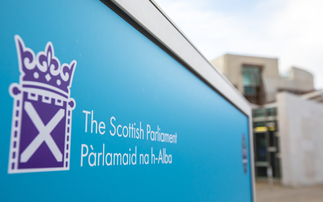Good Energy's Juliet Davenport recounts her experience talking Electricity Market Reform with the Commons Climate Committee
Make no mistake; DECC has made clear that it views its Electricity Market Reform (EMR) project as the most important piece of work it is undertaking at the moment. Its implementation might not be as immediate as the Green Deal or as controversial as an early review of feed-in tariffs (FiTs), but its impact will be long lasting and will underpin the UK's efforts to shift towards a more low-carbon lifestyle.
The House of Commons Energy and Climate Change Committee (ECCC) Chairman, Tim Yeo MP, will be keenly aware of this; since being elected as Chair of this important Committee last summer, he's launched a series of inquiries into those issues making headlines. From grilling the Big Six about their recent price rises, probing the potential for the UK to face its own Deepwater Horizon disaster and cross-examining Chris Huhne about the recent UN Cancun Summit, Yeo and his Committee have focussed their work on those subjects where they can have most impact, both in terms of the public debate and on the Government's own policy making process.
So the chance for Good Energy to appear before ECCC last week was a great opportunity for us to air our views on what we think the Government has got right and wrong in its EMR plans. We're pretty proud of our unique position in the UK energy supply market; not just in terms of our commitment to 100 per cent renewable electricity, but also because one in 20 of our customers are also renewable energy generators. Roughly seven per cent of generators registered on FiTs are Good Energy customers, and you'll be hard pressed to find another supplier that has had the same long-standing commitment to helping those people undertake their own generation projects.
So what of the session itself? Preparing for it was like being back doing finals at university again; hours spent trawling through 140 pages of the deep technical detail of the EMR consultation followed by the prospect of a series of questions on how we felt the proposals would impact on the market if implemented.
Few could deny DECC Ministers' commitment to the EMR programme - they see it as a once in a generation opportunity to put their stamp on the UK energy market for years to come, leaving a legacy to their time in Whitehall. But there is a real need to ensure that the political impetus that they have put behind the process is carried through. Make no mistake - renewable energy currently exists in spite of the current market, not because of it. The headline intention to take a radical approach to reform needs to go beyond column inches or speeches; it needs to be translated into policy on the ground, by the officials. Radical intentions need to be matched with practical sense. We believe that each of the four strands of reform must be implemented one at a time, starting with a carbon price, so that the impact of each set of changes on each other can be properly assessed.
One of key points we made to the Committee, was that there needs to be more recognition of what will and won't encourage decentralised generation; during the session Good Energy found a perhaps unlikely ally in the Chief Executive of Drax, Dorothy Thompson, who agreed that whilst the proposed Contract for Difference FiT was greater for larger generators, above 100MW, it would do little to encourage larger numbers of smaller, decentralised generation projects below that level because the transaction and administration costs of participating in the scheme.
Why is this important? Well, as we also said, Good Energy's reliance on a community of some 1,700 small scale generators means that our source of supply is completely decentralised. That means we have truly mixed portfolio of renewable generators, a characteristic that is absolutely vital to ensure security of supply through domestic renewables, by spreading weather risk as widely as possible. Unlike the other major electricity suppliers, we've been able to freeze our prices during what has been one of the most bitter winters in years. So if the Government wants a mix of power for low-carbon, renewable sources then it needs to think long and hard about how it encourages this mix through decentralisation.
MPs are understandably concerned how these changes will impact on their constituents' bills and Good Energy was more than happy to respond to this. Under any scenario, the next 40 years are likely to see global energy prices increasing. Market reforms will add to short-term costs for consumers, but they will reduce the long-term price risk that would remain if we stick with an energy system that favours fossil fuels and imports over 60 per cent of our energy.
One way of helping consumers reduce their costs is through schemes like FiTs or Smart Meters; which can help households decrease energy usage and increase energy efficiency. Demand-side management will be key and our experience shows that having microgeneration at home is a key driver of behavioural change.
The coming weeks will see the Committee take oral evidence from a number of other witnesses, before retiring to make its conclusions, which are likely to be published in the Spring. The chance to feed our views into this important piece of work has been an exciting opportunity to ensure that the government gets practical and pragmatic feedback on policy around the EMR, and to play our part in ensuring that the UK gets the low carbon shift it needs. Whatever the Government's final proposals, Good Energy plans to be fully engaged, pushing forward the debate on creating a 100 per cent renewable future.
Juliet Davenport is the CEO of Good Energy, the UK's leading 100 per cent renewable electricity supplier







